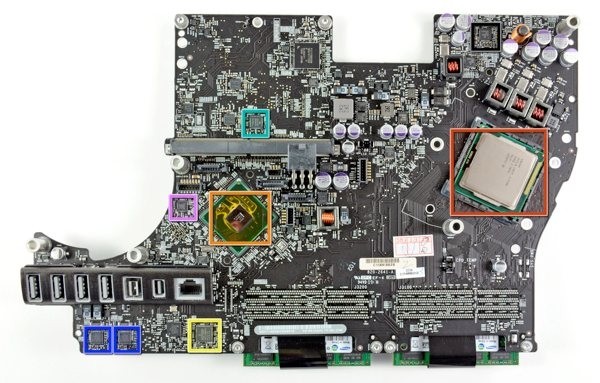Intel's new Z68 chipset is slated to arrive in the first half of May as a hybrid between the P67 and the H67 for the LGA 1155 platform. Besides allowing better CPU overclocking and enabling the Quick Sync transcoding technology that is embedded into Sandy Bridge processors, the high-end chipset is introducing something called 'Smart Response Technology'. Its official debut is expected within a week, but apparently Apple has been granted early access.
As reported earlier this week, Apple unveiled a fresh batch of iMacs that packed a bevy of noteworthy upgrades beneath its aluminum enclosure, including faster processors and graphics as well as Intel's new Thunderbolt interface. But a recent teardown from iFixit revealed the machine also utilizes Intel's still unreleased BD82Z68 platform controller.

There's already speculation that Apple might enable Intel's Smart Response Technology in their machines, which is said to boost system performance by marrying a conventional hard drive to a relatively small SSD. While that might be in the cards in the future, for now there's no indication of Intel's SSD caching technology being used on the new iMac.
Apple does offer a SSD option in its latest iMacs but it involves a replacement 256GB drive rather than the small-capacity drives envisioned for SSD caching. Although you'll still get a nice boost by using it as your operating system and applications drive, the idea behind Intel's Smart Response is that you'd be able to get a similar boost while spending much less on a smaller drive. Only the most frequently accessed data is automatically moved onto the SSD for fast access, while users see a single drive on their computer instead of one for the SSD and another for the disk drive.
Apple could always add the option of a smaller solid-state drive later. A recent leak shows Intel is preparing to launch a "Larsen Creek" SSD with 20GB capacity for use within an SRT-based setup. The drive is scheduled to launch in Q3 2011 according to the latest roadmaps and is expected to offer a substantial boost in performance at boot times.